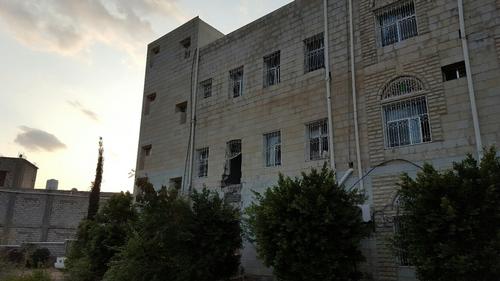Vancouver - Médecins Sans Frontières (MSF) applauded the results of the Strategic Timing of Antiretroviral Treatment (START) trial, released today at the International AIDS Society Conference (IAS) in Vancouver, showing that immediate treatment is beneficial for the individual regardless of the status of their immune system. This builds upon previous evidence that showed HIV treatment itself dramatically prevents transmission of the virus. MSF also welcomed the World Health Organization’s (WHO) plans to release revised treatment guidelines later this year, which are expected to include a recommendation that all people be offered antiretroviral treatment immediately after testing positive for HIV.
“Given the new evidence, it should no longer be a question of when to start people on treatment, but how to help people stay on treatment for life and to maintain ‘undetectable’ levels of virus in their blood,” said Sharonann Lynch, HIV/TB Policy Advisor for MSF’s Access Campaign. “The new global goal should be to offer treatment to every person living with HIV, and to mobilize the political will to match this ambition. We need to see a doubling of the pace of scale-up, with more people put on treatment every day than the day before.”
MSF data being released at the IAS Conference in Vancouver - a multi-centric study looking at 41 MSF HIV treatment programmes over ten (10) years - has shown that one third of people who were diagnosed with HIV but not eligible to start treatment never returned to the facility and were therefore considered ‘lost to follow-up.’ Offering such individuals treatment upon being diagnosed could help substantially reduce the number of people who never return for their follow-up visits in order to eventually start treatment.
“We should no longer squander an opportunity to offer treatment to a person living with HIV who is not yet seriously ill, because our experience shows that a third of these people will never come back to get treatment. We see in our projects that people whose immune systems are still strong are nevertheless very willing to start treatment,” said Dr. Helen Bygrave, HIV Medical Advisor, MSF Southern Africa Medical Unit. “While we focus on the effort to get all people with HIV on treatment, we must also muster all resources to make sure the sickest and the most vulnerable in low-coverage countries, including children, are urgently enrolled into care.”
Further MSF data being released at the conference shows that there is strong acceptability among people with high CD4 cell counts to start life-long treatment. In Swaziland, where MSF and the government of Swaziland started a ‘test and treat’ pilot, MSF found the acceptability and initiation rate of people newly diagnosed with higher CD4 counts was as high as those with low CD4 counts (≥87%).
An MSF population survey from Chiradzulu, Malawi showed that 91% of people on ART had an ‘undetectable’ viral load, but for people who tested positive for HIV and were not on ART—including those not considered eligible for treatment—48% had what is considered a high viral load (>100,000 copies/mL), which means HIV is more likely to transmit. Offering treatment would not only benefit their own health, but also help prevent further transmission.
“In large part, people retained on ART in our projects are achieving undetectable levels of virus, but we are failing those who aren’t eligible for treatment by leaving them to fend for themselves against a virus that weakens their immune system and leaves the virus at high risk of transmitting,” said Bygrave. “By strengthening adherence support, through counselling interventions and viral load monitoring, we can offer all people living with HIV - including those newly diagnosed - the best chance at reaching and maintaining an undetectable level of virus.”
Ensuring there is a strong and increasing stream of international support for HIV treatment becomes all the more critical at this point, but there are troubling signs that the main international funding body for HIV treatment, the Global Fund to Fight AIDS, TB and Malaria, may reduce future support for some essential interventions, such as recurrent costs of commodities, and support to some ‘middle-income’ countries.
“Now’s not the time to slow down the global HIV response in any way, but instead to hit the accelerator to save lives and stop this virus,” said Lynch. “Any attempt to withdraw HIV support from countries at this point is beyond cynical.”
MSF is calling for a meeting of donors, governments and scientists during the UN Summit for the Adoption of the Post-2015 Development Agenda planned for September of this year, in order to review evidence that supports escalating the pace of ART scale-up to reach 90% of people living with HIV. This evidence should raise ambitions for the global HIV response to a level that will fully leverage the opportunities afforded by the latest scientific data.
MSF started providing HIV treatment to people in developing countries in 2000, and today supports more than 200,000 people living with HIV through MSF programmes.





